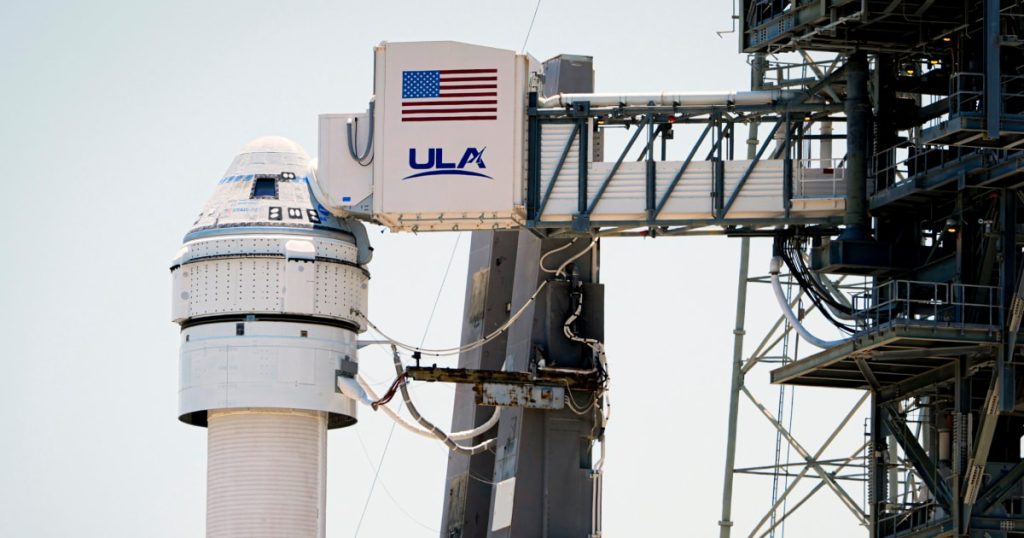NASA has once again delayed the debut crewed flight of Boeing’s Starliner capsule in order to further evaluate a helium leak in the spacecraft’s propulsion system. The launch, originally scheduled for May 25, is now on hold as engineers work to address the issue. The next possible launch date is still under discussion as NASA continues to assess the situation and determine the best course of action.
The postponement of Starliner’s debut mission with astronauts comes after the discovery of a helium leak in the propulsion system, which was found alongside an issue with the Atlas booster just before the spacecraft was set to launch on May 7. The Atlas rocket is manufactured by United Launch Alliance, a joint venture between Boeing and Lockheed Martin. Two NASA astronauts, Suni Williams and Butch Wilmore, are slated to be the first crew to ride Starliner to the International Space Station after several years of delays and technical challenges.
Both Williams and Wilmore are experienced test pilots who will help evaluate Starliner’s performance on its final benchmark test before NASA certifies the spacecraft for regular crewed missions to and from the ISS. SpaceX’s Crew Dragon spacecraft, which was also developed under NASA’s program, has been the agency’s primary taxi to the ISS since 2021. This delay is the latest setback for Boeing’s Starliner program, which has faced numerous challenges and setbacks over the years.
NASA’s decision to delay the Starliner launch underscores the agency’s commitment to safety and ensuring that all technical issues are thoroughly evaluated before proceeding with a crewed mission. The agency has been working closely with Boeing and United Launch Alliance to address the helium leak and other issues in order to ensure a successful and safe mission to the ISS. The delay will allow engineers to conduct further analysis and testing to resolve the propulsion system problem before setting a new launch date.
Despite the setbacks and delays, NASA remains committed to working with Boeing and its partners to ensure the success of the Starliner program. The agency recognizes the importance of having multiple options for crewed missions to the ISS and is dedicated to supporting the development of new spacecraft and technologies for future space exploration. The continued collaboration between NASA, Boeing, and United Launch Alliance underscores the agency’s dedication to advancing human spaceflight and expanding our presence in space.
As NASA continues to assess and address the technical issues with Boeing’s Starliner capsule, the agency remains focused on the safety and success of crewed missions to the International Space Station. The postponement of the Starliner launch highlights the complexities and challenges of human spaceflight, and the importance of thorough testing and evaluation before proceeding with crewed missions. NASA’s partnership with Boeing and United Launch Alliance demonstrates the agency’s continued commitment to advancing space exploration and ensuring the success of future missions to the ISS and beyond.


